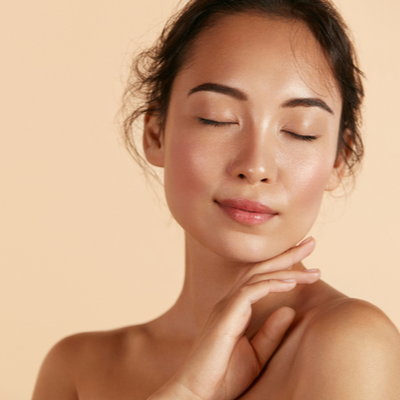 OVERVIEW
OVERVIEW
Many factors affect how your skin looks. Genetics play a role in the skin’s potential to glow, but a healthy lifestyle and positive self-care habits can help change the overall appearance of your skin. Pollution, age, smoking cigarettes, and dehydration can make skin appear dull and lack a healthy, pretty glow, and thus should be avoided.
Top Tips and Treatments to Make Skin Glow
Get plenty of sleep
The amount of sleep that a person needs varies based on the person, but seven to nine hours of sleep a night is best for good overall health. When a person has better overall health, the appearance of the skin may improve.
Cleanse regularly
Wash your face with a gentle cleanser every day. It’s good for most skin to wash in the morning, after a sweaty workout, and at night to keep skin clean and help prevent breakouts. After washing, it’s best to use a moisturizer to lock in healthy moisture.
Exfoliate
Gently exfoliating the skin with a face scrub or even a washcloth can remove the top, dull layers of skin to reveal the brighter layers underneath. It’s important to exfoliate regularly but be careful not to over-exfoliate or use exfoliating tools roughly, as that can cause damage.
Use sunscreen
Use an SPF of 30 or higher every day and often reapply throughout the day. Reapply more often if in the water or participating in a physical activity that causes sweating.
Eat a healthy diet
A diet containing healthy fats like omega-three fatty acids from fish, omega-six fatty acids from plant oils and nuts, fruits and vegetables, and good protein sources might help your skin look better. It’s a good idea to eat a diet with plenty of protein to help repair skin and a wide variety of nutrient-rich foods to make sure your overall health is good.
Focus on hydration
Aim for 8-10 eight-ounce glasses of water per day, and more if you’re exercising regularly or on a hot or humid day. Hydration makes skin look more youthful and healthier.
Consider using retinoids
Creams that contain retinol, like tretinoin, may make skin glow and appear more youthful. Retinoids may stimulate more collagen production, though they can sometimes make skin look red or irritated if used too often.
Use oils, creams, and serums
Keeping skin hydrated from within by drinking water is important, but applying moisturizing creams and serums to the surface of the skin can also help it look better. Many brands and types of skin oils and serums exist that can boost the glow of the skin.
Reduce stress
Stressful times can impact how much time and energy you can devote to your skin but may also lead to breakouts and dull skin. Reduce stress through activities like deep breathing, yoga, or meditation.


